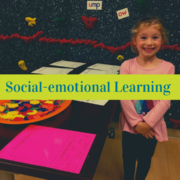ADHD for Parents: Looks Can be Deceiving
The Center for Disease Control reports that over 10 percent of children and teens suffer from attention deficit hyperactivity disorder (ADHD). Even more shocking, many cases go unreported or are misdiagnosed, providing families with improper information and treatment options. With such a prevalence of attention difficulties among America’s youth, it is no wonder that the disorder can easily be misunderstood or misjudged.
For parents, this unknown or variable aspect of attention deficit hyperactivity disorder can be frustrating. Since every child is unique, children who suffer from ADHD may exhibit drastically different symptoms from one another. What many parents do not know is that ADHD does not have just one cause, or cure, or treatment. Other prevalent myths about ADHD are listed below, as we seek to understand what this disorder is—and what it is not.
- Myth #1: ADHD mostly affects children at school. This is simply not the case. Children are often diagnosed once they hit school age, typically around age 6-7. While ADHD is most obvious in school because of the attention needs and self-control that is necessary to complete classroom activities, the disorder is not solely confined within the walls of the school. Any activity or conversation, whether academically-related or not, will be difficult for a child with attention issues. This impulsivity, inattentiveness, or lack of focus can happen anywhere—the car, the house, while having a conversation, or even when playing a game or watching a movie.
- Myth #2: ADHD reflects a lack of care or eagerness on behalf of the child. Again, this is false. In fact, children with ADHD, when made self-aware of their inattentiveness, work even harder to compensate for the lack of focus. Imagine trying to watch a television show while listening to music using headphones. This is similar to how students feel in a classroom when multiple conversations are occurring at once. The multi-sensory distractions become so overwhelming that tuning out is the only reasonable option.
- Myth #3: Children will outgrow the attention disorder. Unfortunately, this is not the case either. While children and teens, with appropriate behavioral and/or medical interventions, may better manage their symptoms as time passes, the disorder is never truly absolved
- Myth #4: ADHD is considered a major roadblock when it comes to success in academia and in the work force. NOT TRUE. While the condition is titled a “deficiency,” ADHD has its own unique set of advantages, as well. If children and young adults learn to channel the disorder properly, the hyperactivity can be transformed into hyper-focus. That said, a person with ADHD may be able to focus on a difficult task for hours on end—determined to finish or solve the problem. ADHD also forces children to be self-sufficient and self-aware. Often times, after managing the disorder in school for a while, children learn to self-check and gauge their own level of attentiveness. They also find it easier to pick themselves up after setbacks or missteps. Similarly, people with ADHD are often forced to think or learn a little differently—their success is determined by the ability to streamline information, block out insignificant details, and question their comprehension of the task. Therefore, a person with ADHD will often hone these practices and exhibit ingenuity, creativity, and resourcefulness. ADHD should not be seen as a wholly detrimental learning disorder— in fact, people can use the symptoms to their advantage with practice and patience.






